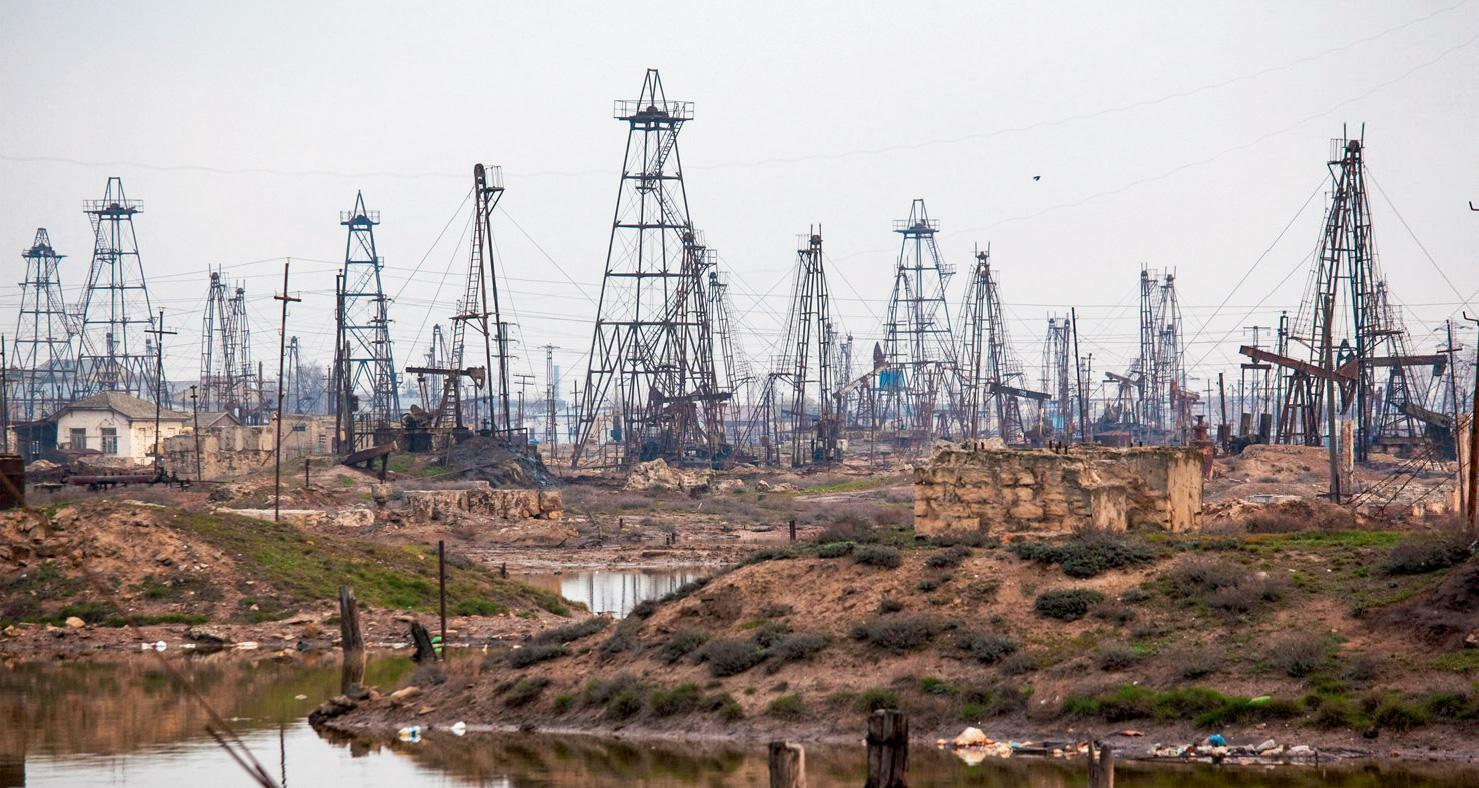At a crossroads Baku to step away.from oil legacy as it prepares for Cop29
The Guardian Weekly
|May 24, 2024
Oil is inescapable in Baku, the capital of Azerbaijan.

The smell of it greets visitors on arrival, and from the shores of the Caspian Sea on which the city is built the tankers are eternally visible. Flares from refineries light up the night sky, and you do not have to travel far to see fields of "nodding donkeys", small piston pump oil wells about 6 metres tall, that look almost festive in their bright red and green livery.
It will be an interesting setting, in a few months' time, for the gathering of the 29th UN climate conference of the parties.
Mukhtar Babayev, Azerbaijan's minister of ecology who will chair the two-week summit, likes to position the country at the crossroads of the world. He says it can provide a bridge between the wealthy global north and the poor global south; as a former Soviet bloc country, between east and west; and between its fellow oil and gas producers, and the countries that provide its export market.
Azerbaijan is where the world's first oil wells were dug in the 1840s, more than a decade before the US dug its first well. It is one of the most fossil fuel dependent economies in the world: oil and gas make up 90% of its exports, and provide 60% of the government's budget.
This brought riches. "Oil and, more recently, gas have been largely responsible for the remarkable rise in living standards in Azerbaijan since the late 1990s," according to the International Energy Agency.
But the country is moving to renewable energy, with plans to expand wind and solar energy. An interconnector is planned, to bring this low-carbon power to eastern Europe, under the Black Sea to Bulgaria, Hungary and Romania.
"Azerbaijan would like to share our experience," Babayev said. "We would like to invite all the countries, especially the fossil fuel producing countries, to be together in this process. Because we understand our responsibility. We think that we can do more, and together."
このストーリーは、The Guardian Weekly の May 24, 2024 版からのものです。
Magzter GOLD を購読すると、厳選された何千ものプレミアム記事や、10,000 以上の雑誌や新聞にアクセスできます。
すでに購読者ですか? サインイン
The Guardian Weekly からのその他のストーリー
The Guardian Weekly
The Guardian Weekly team's small-screen picks of the year, from nature's wonder to a trip to 1970s Belfast
The final season of Jack Rooke's coming out dramedy Big Boys (Channel 4/Netflix/Apple) was as funny and filthy as its two predecessors.
4 mins
December 19, 2025
The Guardian Weekly
THE YEAR THAT WAS
How closely were you paying attention to the news in 2025? The answers to these questions all appeared in the Guardian Weekly - see how many you can recall
2 mins
December 19, 2025

The Guardian Weekly
COUNTRY DIARY
It has become an annual ritual, the cutting of branches from this shapely holly for a winter wreath.
1 mins
December 19, 2025

The Guardian Weekly
PAINT IT ORANGE HOW A CHARITY TURNED ANGER INTO COMMUNITY PRIDE
Dashing through the snow with Father Chris... It does not get any more seasonal, even if it feels like there might be a final syllable missing.
2 mins
December 19, 2025

The Guardian Weekly
EVERDAY HEROES
From a woman speaking out against state violence to a journalist killed in Gaza, here are some of the brave people who made a real difference in 2025
10 mins
December 19, 2025

The Guardian Weekly
A Trumpian Kennedy Center is warning to all cultural institutions
Into the pale stone wall of the Kennedy Center, above its elegant terrace on the edge of the Potomac River, are carved bold and idealistic sentiments.
3 mins
December 19, 2025

The Guardian Weekly
THE INTERREGNUM
Confronted with the 'mobster diplomacy' of Donald Trump, the world finds itself in a transitional moment as the rules-based global order, its institutions and value system face a crisis of credibility and legitimacy
12 mins
December 19, 2025

The Guardian Weekly
Albums
From unspooling love to decadent fun, our critics' picks of the year's finest LPs
10 mins
December 19, 2025
The Guardian Weekly
A PARIS SPRINGBOARD
The decade since the 2015 climate accord has been bruising for activists and the planet. Some experts insist progress is being made-but is it really enough?
6 mins
December 19, 2025

The Guardian Weekly
Tragedy foretold How the rise in antisemitic incidents led to Bondi attack
Shortly after the mass shooting targeting Australia’s Jewish community last Sunday, Rabbi Levi Wolff of Central Sydney Synagogue told reporters that “the inevitable has happened now”.
3 mins
December 19, 2025
Listen
Translate
Change font size

